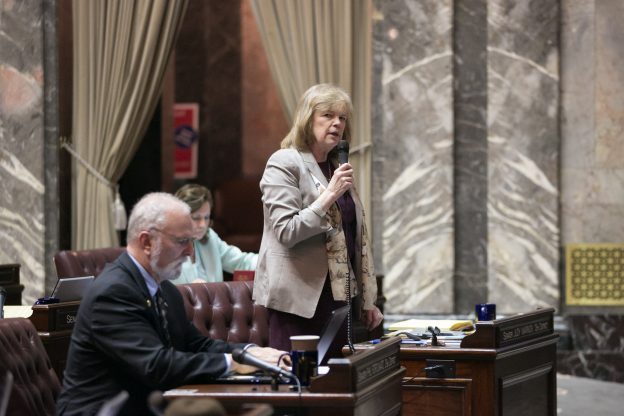Billions in damage to state economy without Hirst fix new study shows
On the heels of the release of a new study that details the negative economic impact of the flawed Hirst water-rights decision, Senator Judy Warnick, R-Moses Lake, issued a letter to the governor calling for action toward a permanent solution.
Earlier in the summer, in response to the idea of the Democrats’ temporary solution to Hirst, local lenders indicated that because of the uncertainty and instability of such a solution they had decided not to lend on properties without legal water.
Now, a new study put out by the Building Industry Association of Washington (BIAW) places a financial cost on legislative inaction.
Some of the details include:
- $6.9 billion lost in economic activity each year in Washington, predominantly in rural communities
- $452.3 million in lost employee wages due to the impacts of Hirst, annually
- Nearly 9,300 lost jobs (FTEs) in rural Washington, annually
- $392.7 million in lost taxes to state and local governments, annually
- $4.59 billion in losses to the construction industry, annually
- $37 billion in lost property values in areas impacted by Hirst
- $346 million in property taxes shifted to other properties in Washington
“I have spent the interim working with stakeholders and colleagues across the aisle to find a solution that works,” said Warnick. “However, I am not getting the sense that legislators who represent areas that aren’t reliant on wells for water have the same sense of urgency on this issue.”
Warnick, who chairs the Senate’s water-related committee, sponsored the only legislation to fix Hirst, Senate Bill 5239. The Senate approved the proposal four times over the course of the 2017 legislative sessions with strong bipartisan approval. The Democrat-controlled House however, failed to bring the measure to a vote or even introduce or pass their own proposals.
Warnick’s letter, signed by 21 members of the Senate Majority Coalition, urges action by Governor Inslee and outlines the merits of the Senate’s proposal to avoid the predicted annual $6.9 billion loss in economic activity, near $350 million in property tax shift, and $37 billion loss in property values in areas of Washington affected by Hirst.
“We need leadership from the governor and for legislators to take this issue seriously,” Warnick said. “This is not just a rural issue. Not fixing Hirst will hurt the entire state and this new study demonstrates the impacts will be significant.
“We spent all session hearing how our state needed more money. It is unwise to make those claims while saying our state can afford to lose billions on the backs of rural families.”











